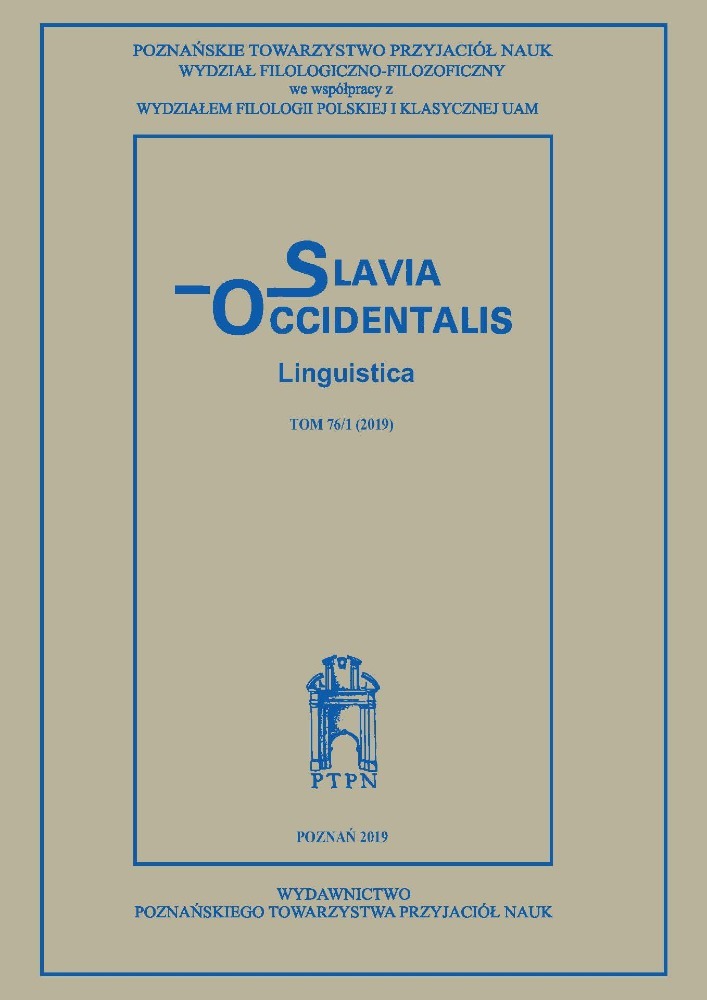Abstract
This article presents various types of narration safety measures adopted by the message sender and their linguistic indexes in contemporary media messages. The material under scrutiny were episodes of “Magazyn Kryminalny 997” from 1995-2010, hosted by Michał Fajbusiewicz. Of special interest are accounts of murders presented in “MK 997” as dramatizations. An analysis was carried out primarily of the verbal aspect of the dramatization i.e. verbal and style-related means used by the programme’s authors and the applied sender-receiver strategies. The sender plays an important role as he adopts safety measures at the time of providing information about the crime. A linguistic analysis leads to a conclusion that in “MK 997”, the sender formulates hypotheses and makes use of modality indexes with the aim of expressing various degrees of conviction in the statements (ranging from lack of knowledge to certainty). What is more, he uses judgemental modulators, forms of the conditional mood and conditional structures. Notably, the function of the safety measures adopted by the sender in his statements is to lend credibility to the message.
References
EJO: K. Polański red., Encyklopedia językoznawstwa ogólnego, Wrocław 1993. Jodłowski S., 1976, Podstawy polskiej składni, Warszawa.
Laskowski R., 1998, Tryb, w: R. Grzegorczykowa, R. Laskowski, H. Wróbel, Gramatyka współczesnego języka polskiego. Morfologia, t. 1, Warszawa, s. 178–186.
Laskowski R., 1998, Uwagi o znaczeniu czasowników, w: R. Grzegorczykowa, R. Laskowski, H. Wróbel, Gramatyka współczesnego języka polskiego. Morfologia, t. 1, Warszawa, s. 152–157.
Mrozowski M., 2001, Media masowe: władza, rozrywka i biznes, Warszawa.
Stróżyk M., 2018, Relacje o morderstwach we współczesnych przekazach medialnych (na przykładzie „Magazynu Kryminalnego 997” i „Faktu”), komputeropis pracy magisterskiej, Kraków.
SWJP: B. Dunaj red., Słownik współczesnego języka polskiego, Warszawa 2001.
Tutak K., Sagan K., Stanisławek J., 2008, Językowe mechanizmy asekuracji wypowiedzi reklamowej, w: Z. Cygal-Krupa red., Współczesna polszczyzna. Stan. Perspektywy. Zagrożenia, Kraków–Tarnów, s. 529–536.
Tutak K., 2003, Leksykalne nieczasownikowe wykładniki modalności epistemicznej w autobiografiach, Kraków.
Wróbel H., 1991, O modalności, „Język Polski” 71, z. 3–5, s. 260–270.
WSJP: P. Żmigrodzki red., Wielki słownik języka polskiego, www.wsjp.pl.

